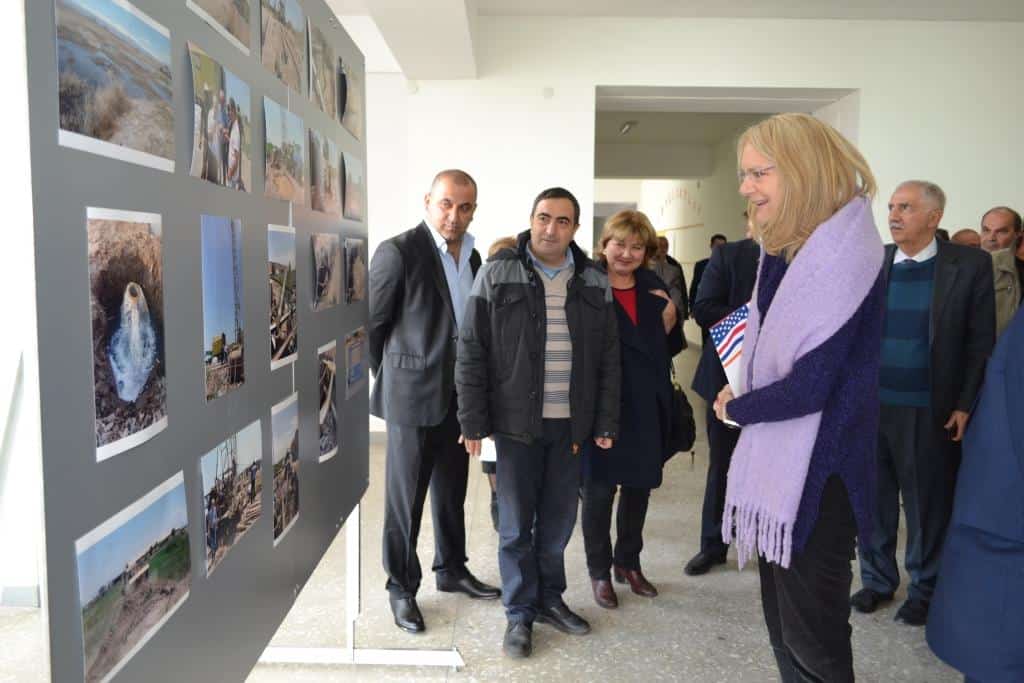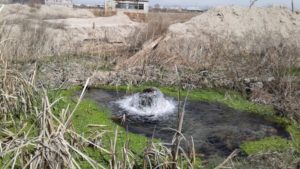
Well Closure in Armenia to Save Nearly 2 Million Cubic Meters of Groundwater Annually
USAID and local partners marked the successful completion of a project that supported the permanent sealing of a self-flowing well near Sipanik village in Armenia’s Ararat Valley.
USAID Armenia Mission Director, Deborah Grieser; Armenia’s First Deputy Minister of Nature Protection, Erik Grigoryan; representatives of the regional government, local residents and mayors of neighboring villages attended the event.
 The permanent closure of the well in Sipanik was initiated at the request of local mayor, Hrant Gevorgyan, based on the recommendation of the Ministry of Nature Protection. Never used by the community, the water from this self-emitting well flooded the neighborhood, water-logging the fields. With a water discharge of about 60 liters per second, about 1.9 million cubic meters of water will be saved each year thanks to the well’s proper closure.
The permanent closure of the well in Sipanik was initiated at the request of local mayor, Hrant Gevorgyan, based on the recommendation of the Ministry of Nature Protection. Never used by the community, the water from this self-emitting well flooded the neighborhood, water-logging the fields. With a water discharge of about 60 liters per second, about 1.9 million cubic meters of water will be saved each year thanks to the well’s proper closure.
In 2016, the USAID funded Advanced Science and Partnerships for Integrated Resource Development (ASPIRED) project conducted an inventory of groundwater wells, natural springs and fish farms, revealing 135 non-operational groundwater wells across the Ararat Valley, Armenia’s key agricultural hub. The total annual discharge from these unused wells is estimated to be around 35 million cubic meters of water. As a result, high quality groundwater is simply wasted, while the ecological imbalance of groundwater aquifers is increasing dramatically.
 The well closure was carried out by the USAID ASPIRED project as part of technical assistance to the Armenian government to address groundwater challenges in the Ararat Valley. Among its activities, ASPIRED demonstrates the use of innovative technologies and approaches to groundwater and energy saving via pilot projects in the Valley. ME&A implements ASPIRED under a task order contract awarded to ME&A by USAID/Armenia in 2015.
The well closure was carried out by the USAID ASPIRED project as part of technical assistance to the Armenian government to address groundwater challenges in the Ararat Valley. Among its activities, ASPIRED demonstrates the use of innovative technologies and approaches to groundwater and energy saving via pilot projects in the Valley. ME&A implements ASPIRED under a task order contract awarded to ME&A by USAID/Armenia in 2015.


